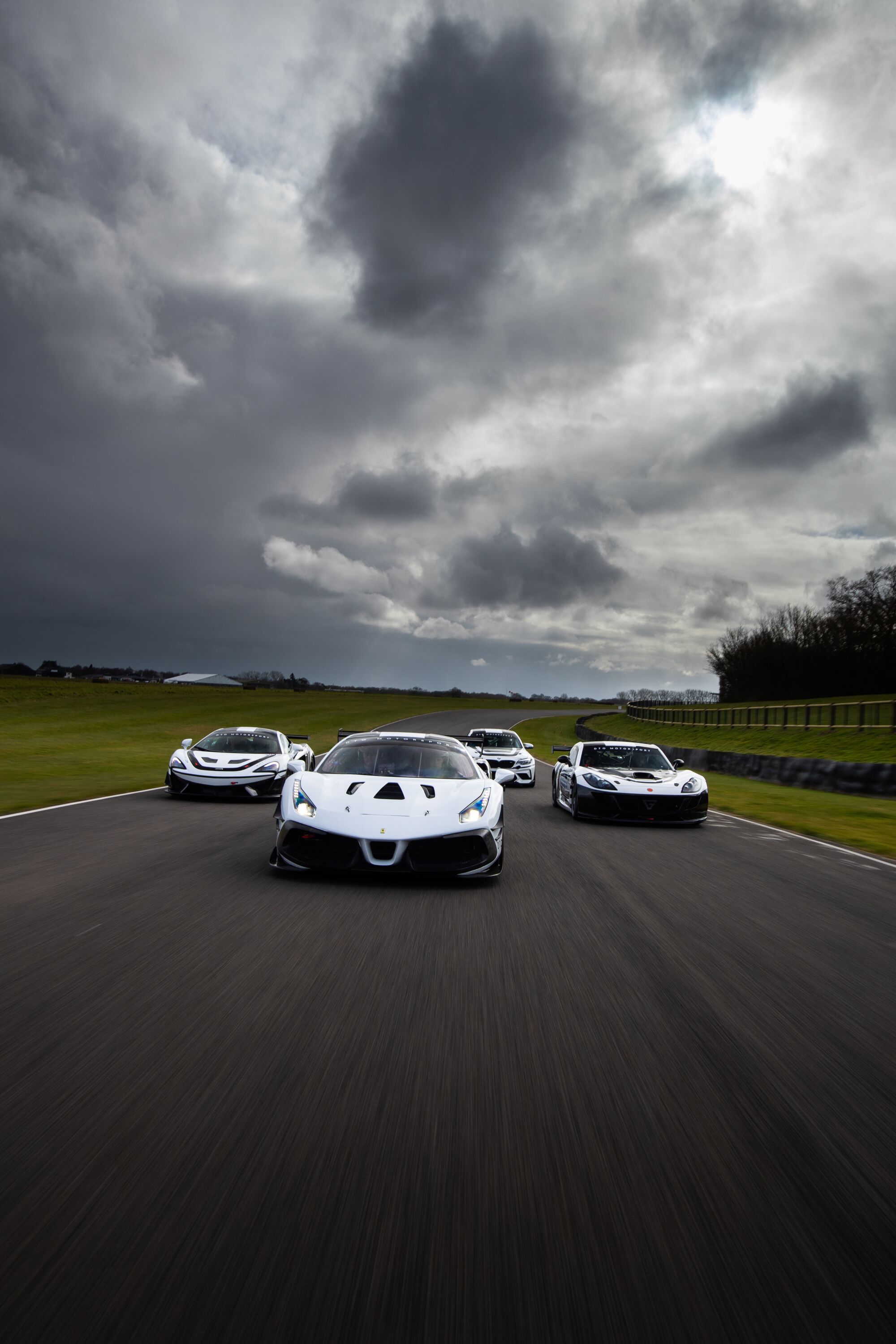A wave of Chinese cars on our shores | Axon's Automotive Anorak
Some years ago I wrote an Anorak piece after witnessing the then-rare novelty of a small cluster of Chinese-made vehicles waiting at some traffic lights in West Sussex. In this now quite-old article I predicted that it will only be a short matter of time until Chinese vehicles with their many unfamiliar brand names will be ‘invading’ British roads.
Having recently returned from a lengthy break over on the Continent, I can confirm that this invasion has already begun in earnest in many other European countries, with unknown motoring names and different car models rapidly becoming a common sight in France, the Benelux, Germany, and so on.

A surprising number of Chinese cars are already available here in the UK, these including some models that you may not have realised are built in China, such as the entire current MG range; the MG 3, 4, 5, ZS and HS, with the brand heritage-reflective Cyberster roadster set to arrive later this year. Also from China we get the new electric Lotus Eletre (Lotus now being owned by the huge Chinese Geely), the Smart #1, Polestar 2, DS9, Honda e:Ny1, Maxus Mifa 9 MPV, all LDV light commercial vehicles, plus the BYD Atto 3, Dolphin and new Seal, and GMW Ora Funky Cat (now more sensibly renamed Ora 3); all already sold in the UK. Although you may not have seen many of the latter as yet, I forecast you will within a few months, especially from BYD and GWM Ora.
For the last quarter of 2023, BYD was the world’s largest producer and retailer of electric cars, out-selling Tesla, with GWM, an abbreviation of Great Wall Motors, holding the dubious honour of being the first Chinese car maker to seriously try and get a foothold in the European market. It was than a decade ago when it attempted to sell its cheap Vauxhall-Opel Frontera SUV clone – called Landwind – in the Benelux. It’s planned invasion didn’t last long, however, as the Landwind scored a shameful zero in the EuroNCAP safety test, forcing GWM to return home to rewrite its homework.
Now it’s back with a mercifully more suitable and secure product range through its suite of brands; Great Wall, which briefly once offered a pick-up truck here, Ora, seller of the er, funky, Ora 3. There’s also Haval which makes crossovers but has no plans for the UK and Europe quite yet and SAR, builder of premium EV saloons. Wey is GWM’s seemingly caffeine-obsessed SUV brand, already available on the Continent with its semi-premium Coffee, Mocca, Macchiato and Latte plug-in hybrid models. Wey is now also introducing its tough off-road Tank 400 sub-brand into some export markets.
As the BYD and GWM/Ora names become more familiar to us, a vast roster of as-yet other unknown Chinese car brands are also set to burst onto our roads, with NIO, Always, Lynk&Co, LeapMotor and many others set to follow. NIO already has a token presence in the UK, having debuted its EP10 1,360 electric supercar here at the Festival of Speed a few years ago, and now with a temporary base now set up at the Bicester Heritage site. Always already sells its electric U5 and U6 crossovers in parts of mainland Europe, as does the oddly-named Lynk&Co with its appealing SUVs and LeapMotor offers its inexpensive BEV T03 city car via more established mainstream dealer networks such as Ford in France.

Now the second largest exporter of new vehicles after Japan, China produces many other new-to-us car brands that we can perhaps one day look forward to arriving en masse on British roads. These include;
AITO
Born very recently in 2021 as Huawei’s first entry into the rapidly expanding Chinese automotive market, AITO (standing for Adding Intelligence To Automobile) has launched with a pair of electric crossover models; the M5 and M7.
Avatr
A new EV brand created by the large local Changan vehicle group in partnership with battery producer CATI, to sell its Alpha SUVs
BAIC Motor
A long-established marque by Chinese standards, BAIC Motor was founded as a vehicle maker in 1958 and today has partnerships with Hyundai and Mercedes-Benz, as well as owning its own Beijing, Arcfox and Foton brands. Like AITO, Arcfox has connections with China’s largest telephone communication company Huawei.
Baojun
Created with assistance from General Motors in 2009 with its Chinese partner SAIC-GM-Wuling, Baojun builds both ICE and EV-powered saloons, SUVs, MPVs and light commercial vehicles, including badge-engineered models for Chevrolet in South American, plus one of China’s best-selling cars; a Wuling people carrier.
BAW
Introduced by BAIC Motor specifically to build small Smart-style city EVs
Beijing
Also part of the huge BAIC empire, Beijing has been building off-road jeeps for decades, but now concentrates mainly on a vast range of saloon and SUV models as one of China’s main domestic marques.

Baizhi
Introduced as recently as 2021, Baizhi builds small and affordable (sub-£5,000) electric city cars with imaginative names, such s the Big Cat and Big Bear.
Bestune
Launched in 2006 by the giant FAW (First Automotive Works) group as an import basher, Bestune has an enormous range of conventional family saloon and crossover models for all tastes and budgets.
Brilliance
One-time potential saviour of the Rover Group, and a long-term but now-ex-partner of BMW, Brilliance was one of the first Chinese car makers to present its cars in Europe annually at the Geneva Motor Show, but after much initial promise, European imports as yet have still to materialise.
Ciimo
Launched uniquely in China by Honda in partnership with Dongfeng in 2010, Ciimo now builds modified versions of electric Honda models, including the e-Ny1 for export.
Changan
State-owned, Changan is one of China’s largest vehicle makers, building a vast array of model and brand names (Ruixang, Shenqi, Honor, Deepal, etc.) and also working closely in partnership with Ford, Mazda and the PSA Groupe.
Chery
Chery’s first model was a modified version fo the original Seat Toledo. The marque has come a long way since then, now partnering with JLR, building cars in Italy branded as DR, and selling in huge numbers in China, with its strong-selling Cowin, Exeed and Jetour brands, as well as its own models, including the cute QQ Ice Cream city EV.
Dayun
Originally a producer of enormous truck engines, the Dayun group now builds the classy Tesla Model 3-rivalling electric ES3 premium saloon, plus a wide range of crossovers under the Yuehu and Yuanzhi brands.
Dongfeng
One of the ‘Big Three’ Chinese car makers (along with Changan and FAW), Wuhan-based Dongfeng built its first successful car – based on the old Citroen ZX – in 1992 and has subsequently grown to become a major automotive group, woking closely with Stellantis, Honda and Nissan, and owning a large portfolio of Chinese vehicle brands, including Fengshen, DKSK (which already sells vans in the UK), Aeolus, Fengxing, Forthing, Fengon, Lantu, Voyah, and so on.
Enovate
Originally known as DearCar, then DearCC, today EV maker Enovate also trades under the Enoreve name to market its crossover ME-5 and ME-7 EVs.
Exeed
Launched by the Chery group in 2019 to conquer the European markets, Exeed specialises in electric SUV models, with the European onslaught set to begin soon.
FAW
China’s oldest car manufacturer (First Automotive Works) built its first car in 1953, the Hongqi (Red Flag) formal saloon reserved for senior Communist Party members only. Today FAW is huge, with the Hongqi brand remaining as the most prestigious of Chinese car marques (its large eHS9 luxury EV SUV just launching into the Norwegian market), plus Haima and Bestune added, and close liaison with the Volkswagen Group (including the stand-alone Jetta brand) and Toyota also adding to FAW’s huge sales in China.
Grove
Grove is unusual as it builds hydrogen-powered passenger cars, rather than electric, and is owned by the Chinese States.
Geely
Unusual for China in being a private company, rather than State-owned or in league with already-established car makers, Geely (GAC) is now China’s most potent vehicle group, owning Volvo, Lotus, LEVC, Polestar, Proton, etc, plus its own domestic brands such as Lynk&Co, Terrafugia, Geometry, Trumpchi, Caocao, Benelli, Volocopter, Qjiang, StarRides, Hycan, Lifan Autos, Zeekri, ZX Auto and Farizon. Geely founder Li Shufu also holds a 10 per cent stake in Mercedes-Benz and 7.6 per cent in Aston Martin, plus a strategic partnership with Renault.
Hengrun
Hengrun’s HR03 crossover is a virtual copy of the Volkswagen ID.Life, but sold at a much lower price.
HiPhi
HiPhi (a.k.a. Human Horizons) builds the stylish, ultra-modern X 6-seater crossover, plus the Z, an ambitious and expensive 672bhp prestige sports saloon.
Hozon Auto
A new phenomenon in China, Hozon Auto launched in 2022 to great instant success with its premium Neta U SUV and Neta S saloon models, offering an electric range of more than 435 miles.

Jidu
Launched recently by China’s leading internet company – Baidu – as an entry into the burgeon car market, in co-operation with Geely, Jidi first model is the Robo 01, a modern electric saloon.
Modern Auto
A recent start-up building a range of EVs for each of the main market segments, all with a pleasing contemporary design.
Qoros
Like Brilliance, Qoros displayed at the main European motor shows for years, but without ever actually importing any of it good-quality hatchbacks and saloons. The Company now seems to have returned back to the drawing board to ready itself for a more determined assault on Europe.
Roewe
Part of the large SAIC group (along with MG, LDV and Maxus), Roewe’s routes lie in the remains of the failed Rover Group, with Roewe sounding like Rover when spoken in the local dialect. Today Roewe is a successful manufacturer, building a wide range of saloon, hatchback and SUV models.
Skywell
A well-established producer of Golden Dragon buses, Skywell (and its Skyworth partner) is a new passenger car division which has launched with a variety of electric crossover SUVs.
SSC
SSC (Small Sports Cars) is a rarity in China as its concentrates on building an agreeable electric SC-01 sportscar (said to be inspired by the Lancia Stratos), sold locally for under £40,000.
Weltmeister
Despite its very Germanic name, Weltmeister was founded by a senior ex-Volvo China manager in 2015 to produce quality electric saloons and SUVs, with a obvious German influence.
The above only represents around a third of all of the numerous and as-yet unknown Chinese car brands with doubtless many more to follow and many making their way over here in the coming years. The EU has recently accused China of ‘dumping’ its EV cars in Europe at knock-down bargain prices to establish a foothold in these vital export markets, thus threatening the viability and competitiveness of the established European manufacturers. Time will tell if and when the Chinese motor industry becomes and dominant and important as its fellow Asian Japanese and South Korean car makers. I forecast it won’t take very long.
Nio
BYD
MG
HiPhi
Axon's Automotive Anorak
GWM
Ora
Road
News

News
The EU’s new EV import tariffs will make the market fairer | Axon’s Automotive Anorak

News
Chinese cars are about to become mainstream | Axon’s Automotive Anorak

News
Axon's Automotive Anorak: A looming Chinese revolution
































































